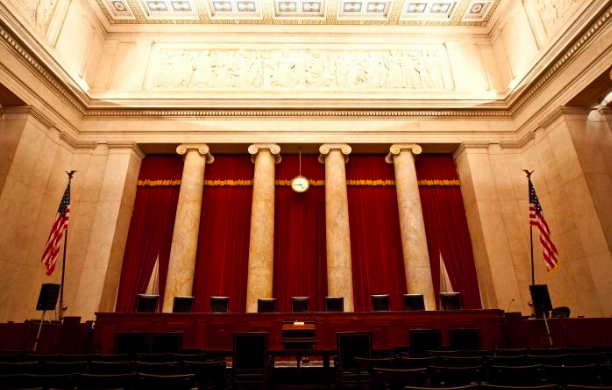Justice Kennedy Resigns From the Supreme Court
Associate Justice to the Supreme Court of the United States (SCOTUS), Anthony Kennedy, has announced his resignation from the Court, effective July 31. After months of rumors that the 81 year-old Justice would be departing from his judicial role on the nation’s highest court, his retirement was officially announced on July 27. Appropriately enough, the news sent shockwaves throughout Washington, D.C., as well as the rest of the country.
Justice Kennedy was appointed to the SCOTUS by President Reagan in 1987 and has since provided three decades worth of consequential swing votes. Kennedy’s desire to find a compromise between competing ideologies has given him the unique status of the last true swing voter on the court–his decision to step down from the court will take with him the unique moderating role that he fulfilled by refusing to be reliably conservative or liberal in his decisions. Some of these decisions include Planned Parenthood v. Casey (1992) where Justice Kennedy voted to uphold Roe v. Wade and support a woman’s right to abortion, Citizens United v. FEC (2010) where Kennedy maintained that corporations have the right to free speech, Obergefell v. Hodges (2015) where Kennedy voted to expand gay rights and legalize same-sex marriage, and Fisher v. University of Texas (2016) where Kennedy voted to uphold the University’s policy that considered race in admissions (better known as Affirmative Action).
What Happens Now?
As mandated by the Constitution, the President will nominate someone to fill the vacancy on the Court. President Trump will likely replace Justice Kennedy with a reliable conservative that will shift the nation’s highest court further to the right, and seal its fate as a conservative institution for decades–if not generations–to come. The consequences of this nomination cannot be overstated, for both conservatives and liberals alike. Conservatives will rejoice in the wake of a solidly conservative court that will wield the potential to make abortions less available, affirmative-action programs more limited, and executive power more sweeping. Liberals will seize this opportunity to energize their constituents through emphasizing the very real consequences it will have for their livelihood and shared vision for America, but have little they actually can do in terms of obstruction, seeing as though the Republican-controlled Senate went through with the “nuclear” option last year to reduce the number of Senate votes needed to confirm a Supreme Court nominee from 60 to 51 (a simple majority). This move allowed for Justice Neil Gorsuch’s confirmation in April last year.
The President has promised to fill Kennedy’s vacancy with a judge from a list of potential nominees that he started writing during his campaign. The list includes judges such as Amy Coney Barrett, Thomas Hardiman, Brett Kavanaugh, and Amul Thapar. Senate Majority Leader, Mitch McConnell, has promised to bring the Senate to a vote on the nomination early this fall, long before the November midterms will have the chance to shake up the Republicans’ slim 51-49 majority. McConnell has been accused of hypocrisy for promising to bring the Senate to a vote before the November midterms seeing as though he famously barred President Obama from filling Antonin Scalia’s vacancy on the court in 2016 by not allowing the Senate to vote on Merrick Garland’s nomination because, it was, in McConnell’s words, “an election year.”
No matter who the President nominates or when the vote takes place, “[It] will be,” in the words of Nan Aron, head of the liberal judicial group Alliance for Justice, “the most significant fight over a Supreme Court nomination in decades.”












































